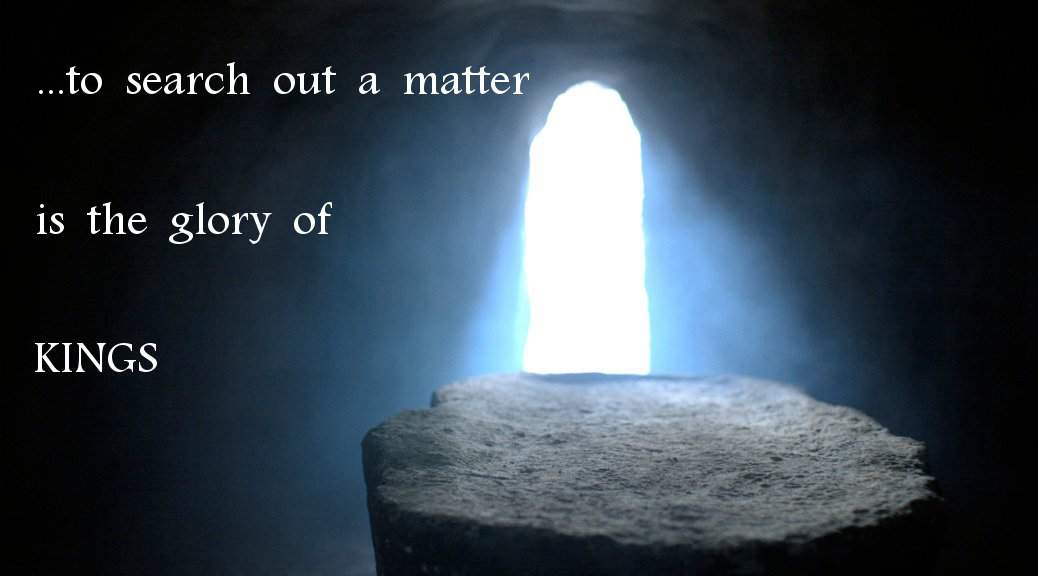Previous Post
It is of great importance when it comes to the Body of Christ and when it comes to one’s mandate, to be greatly aware of the difference between the commission and the calling, while also being aware of the outright or the unintentional false. And this implies the prophetic within the Body of Christ.
Again, we need to remind ourselves that despite so many people calling themselves prophets, many are not called unto such a ministry or even commissioned. Many are just self-professed “prophets”, or wrongly appointed or released into such an office. This has caused great harm to the Body of Christ. One should be reminded it is folly to ignore the true prophet and how the Lord leads the prophet to speak and to act. It is just as dangerous to heed a false prophet. Indeed, a prophet is called to be obedient, and never rebellious. A prophet speaks not out of his own will or imagination, or to benefit the self but only to glorify God and to speak as the Lord leads.
There is often a debate on what is a false prophet. Is it merely someone who is not a believer at all and who intentionally causes deception and anarchy? Or can it be a believer who speaks unintentionally words that come not from God? When it comes to false prophets, does the falseness imply to the prophecy itself, or the person? And then, to say someone is a false prophet is also an oxymoron, because if someone is a prophet, then he cannot be false. If someone is false, then they surely are not a prophet, but someone who is pretending or deceiving.
We need to understand that there are those who are non-believers, planted for a purpose to speak “prophetic” words within the church. Such words are nothing more than divination. Then we also find those who are believers (even to the loosest of terms) but do speak not the truth, both in fact intentionally and unintentionally. Such believers are not called to be a prophet. Some of these believers know they are not called to such a mandate, so they fake it, and then you get those who are clearly under deception themselves they stand in the office.
Let us first look at the concept of the false prophet in the New Testament. It says the following:
Mark 13:22 For false christs and false prophets will rise and show signs and wonders to deceive, if possible, even the elect.
2 Peter 2:1 [Destructive Doctrines ] But there were also false prophets among the people, even as there will be false teachers among you, who will secretly bring in destructive heresies, even denying the Lord who bought them and bring on themselves swift destruction.
1 John 4:1 Beloved, do not believe every spirit, but test the spirits, whether they are of God; because many false prophets have gone out into the world.
And also Matthew 7: 15 “Beware of false prophets, who come to you in sheep’s clothing, but inwardly they are ravenous wolves. 16 You will know them by their fruits.
Take note of Mark 13, which speaks of false christs, which is an oxymoron. If you are not Christ, you are false, which includes the horde of people and demons pretending otherwise. Consider there is the argument that in every instance where the false prophet is mentioned in the New Testament that it never refers to a believer. This, however, cannot be proved. What we do read is the existence of the false teachers and the false prophets in the midst of the Church, but if they are believers or not this cannot be ascertained.
We do read that they come to you in sheep’s clothing, but inwardly they are ravenous wolves and they will secretly bring in destructive heresies, even denying the Lord who bought them, and bring on themselves swift destruction. One can argue that surely a believer will not intentionally seek to deceive and bring others to a state of deception. After all, if we look at the Scriptures, it speaks of deception, bringing in destructive heresies, and being like ravenous wolves. All of these do not sound like the character and nature of a believer. Or does it?
Let us also look at what it says of the false prophet in the Old Testament in Ezekiel 13: And the word of the Lord came to me, saying, 2 “Son of man, prophesy against the prophets of Israel who prophesy, and say to those who prophesy out of their own heart, ‘Hear the word of the Lord!’ ” 3 Thus says the Lord God: “Woe to the foolish prophets, who follow their own spirit and have seen nothing! 4 O Israel, your prophets are like foxes in the deserts. 5 You have not gone up into the gaps to build a wall for the house of Israel to stand in battle on the day of the Lord. 6 They have envisioned futility and false divination, saying, ‘Thus says the Lord!’ But the Lord has not sent them; yet they hope that the word may be confirmed. 7 Have you not seen a futile vision, and have you not spoken false divination? You say, ‘The Lord says,’ but I have not spoken.” 8 Therefore thus says the Lord God: “Because you have spoken nonsense and envisioned lies, therefore I am indeed against you,” says the Lord God. 9 “My hand will be against the prophets who envision futility and who divine lies; they shall not be in the assembly of My people, nor be written in the record of the house of Israel, nor shall they enter into the land of Israel. Then you shall know that I am the Lord God. 10 “Because, indeed, because they have seduced My people, saying, ‘Peace!’ when there is no peace
Here we find that the false prophet speaks out of his own heart, moving in divination (witchcraft), therefore operating by a different spirit and leading the people away from God through a process of deceptive seduction. This, therefore, links up to 1 John 4 verse 1 which speaks about not believing every spirit. Jesus warned false prophets will rise and show signs and wonders to deceive. The only way for counterfeit signs and wonders to be performed is through the demonic, thus a different spirit.
It says in Jeremiah 23: 16 Thus says the Lord of hosts: “Do not listen to the words of the prophets who prophesy to you. They make you worthless; They speak a vision of their own heart, Not from the mouth of the Lord. 17 They continually say to those who despise Me, ‘The Lord has said, “You shall have peace” ’; And to everyone who walks according to the dictates of his own heart, they say, ‘No evil shall come upon you.’ ”
To find what we find regarding the false prophet is that there is an intentional deception, not speaking by the Spirit of the Lord and that their words at worthless and of no weight. The Lord also reminds us that a true prophet is known by his fruit, thus his relationship with the Lord. So, let us first accept the reality that there are false prophets in the church. And we need to accept that some of these false prophets are intentionally planted to sow division and deception. They seek not to bring the truth of God but to sow confusion, and to bring harm and destruction. After all, there is a spiritual war raging daily between the Kingdom of Light and the devil’s kingdom. The battle is over souls. So indeed, they are the ravenous wolves and they come to bring division, discord, and strife.
The question remains, can a believer thus be classified as a false prophet? This will imply intentional deception, speaking out of his heart, and being led by a different spirit. Remember, such false prophets are classified as ravenous wolves. This is a tricky point of debate because the reality is that there are believers out there who believe they are operating in the Holy Spirit but are operating in a different spirit. It is a matter of being deceived themselves. They are therefore under a cloak of deception. This can easily happen as a result of a lack of spiritual maturity, not being accountable, and not being open to correction and rebuke. There are believers who also follow their own agendas, who seek to pursue their own will, and who seek to pursue a different purpose, which would take them on a path of conflict against the Lord Himself. They will also act like ravenous wolves, for their intentions are based on the Self and the need for self-exaltation, thus driving a need to promote their own agenda.
Consider then, are those who prophesy with a different agenda, or even are deceived by being seduced by a different spirit, truly by definition serving the Lord? If their intention is not to serve the Lord, then it is clear cut they are false. Yet, if they are serving the Lord, yet their prophecy is misguided or selfish or even seductive in nature, how then shall they be classified? False or misguided? Again, we need to remind ourselves the Lord said “they shall be known by their fruit”. This implies a true prophet is one that has a close walk with God and has completely yielded to the leading of the Holy Spirit.
You can therefore say that one has to be aware of the reality that there are false prophets, thus implying those who intentionally seek to cause harm and destruction and that there are believers who are merely misguided or seduced, who intentionally or even unintentionally cause harm to the Body of Christ. Either way, they should not be listened to, for both parties will and shall cause harm, and both parties will and can introduce false doctrine and spread lies and deceptions. For a believer, there is the danger to fall into a trap of seduction, spreading false words and teachings under the guise of seductive “prophecy” (thus divination) if one does not continually check your heart, guard your mind, and remain open to correction, first and foremost from the Holy Spirit.
After all, how many preachers and teachers are not speaking false doctrines in the church today? Is there an intention to deliberately cause harm, or are they convinced by a deceptive spirit or by their own imagination of the seductive nature of the mind of the validity of their theology? Whatever the case, if they seek to deliberately cause harm (thus not a child of God), or are only leading others astray unintentionally by allowing deception to saturate them, they must not be listened to. This also implies to the prophetic.
We, therefore, need discernment and we need to be led by the Spirit of the Lord regarding the prophetic word and those who claim themselves to be a prophet. Either someone is ordained and mandated by the Lord to stand in the office, or they are not, be it a believer or a non-believer. Yet, many do fake the calling, or are convinced of their calling, or are intentionally claiming the title for their own gain and profit. We need discernment when a word is spoken deliberately to seduce or deceive, or when it is merely misguided or has hidden agenda.
Now, in light of all this, one also needs to take note that there are indeed prophets in waiting in the churches that are also at times speaking words that are not always accurate, or even misguided or colored in. This is because we need to understand the difference between the calling and the commission. When Jesus called His disciples, He didn’t call them to be apostles, prophets, evangelists, pastors, or teachers right away. He simply called them to follow Him. And as they followed Him, Jesus promised that He would make them into “fishers of men.” So there was a calling on their lives, yet for 3½ years they followed and learned from the Master. The disciples left their nets immediately to follow Jesus, but they were not made into fishers of men immediately. There was a season of training between when Jesus called them to follow Him and when He commissioned them to preach the gospel.
We read in 1 Kings 19: Elisha Follows Elijah: 19 So he departed from there, and found Elisha the son of Shaphat, who was plowing with twelve yoke of oxen before him, and he was with the twelfth. Then Elijah passed by him and threw his mantle on him. 20 And he left the oxen and ran after Elijah, and said, “Please let me kiss my father and my mother, and then I will follow you.” Like the disciples who heeded the call to follow, so did Elisha heed the call to follow. Elisha was at the time farming, but when the mantle was placed upon him, he was already walking in his calling. The calling was thus already on Elisha, it just has to be stirred and brought to life by another prophet.
Obedience to the call of God is thus about following Jesus. We all have a calling on our lives as disciples of God, but there is a time and season before we are commissioned to step into that calling. As we continue on our spiritual walk, we must focus on following Jesus, staying obedient, learning, growing, and maturing for then the commission will come.
As shown, Elisha is a great example of this same process. When Elijah was sent to him to anoint him to be prophet in his place, Elijah threw his mantle (symbolizing his office and anointing as a prophet) over Elisha. As we follow their story we find that Elisha served Elijah, who then went through an apprenticeship or mentorship season with the senior prophet while he was the prophet in training, until 2 Kings 2 when Elijah is taken up from Elisha in the whirlwind. Elisha cried out: “My Father, My Father.” At this occurrence, the mantle of Elijah fell and Elisha picked it up and all the sons of the prophets who watched said surely the spirit of Elijah rests on Elisha. At this point in time, Elisha’s call to be a prophet turned into a commission.
David also went through this process. Remember the prophet Samuel anointed David when he was a mere shepherd. David had a call on his life to be king, but it took a while before he became king (his commission). Take for example also the Apostle Paul. We first meet Paul as Saul of Tarsus, a persecutor of the church, who has a divine encounter with the resurrected Christ on the road to Damascus. When Ananias is sent to Saul after his conversion in Acts 9 verses 15 and 16 the Lord said to Ananias: 15 But the Lord said to him, “Go, for he is a chosen vessel of Mine to bear My name before Gentiles, kings, and the children of Israel. 16 For I will show him how many things he must suffer for My name’s sake.”
From Jeremiah 1:1 we learn that Jeremiah was a priest, the son of Hilkiah, the High Priest who found the Book of the Law (2 Kings 22:8). In verses 2 and 3 we are told that his calling was in the thirteenth year of King Josiah’s reign (BC 627) and that his ministry continued to the eleventh year of King Zedekiah when the Kingdom of Judah was destroyed by the Babylonians (BC 586) – a period of just over forty years. In Jeremiah 1 verse 5, Jeremiah was told that long before he was born, God had chosen him for this important task. He was to be a prophet, not just to the Kingdom of Judah but “a prophet unto the nations”. He was called by God and charged with an awesome responsibility. He was to speak God’s Word to Judah and the nations, to his own people and the world. That Word would determine their destinies and because it was God’s Word, it would surely come to pass. And, importantly, whilst making God’s warning very clear to Judah, the Gentile nations would be left in no doubt that it was God, not them, who was removing His people from the land.
So we learn from Jeremiah even though he was fulfilling the task of a priest, Jeremiah was called for something else … the prophetic. And that prophetic only stirred to life when the Lord called Jeremiah unto prophetic service, just as the Lord called Samuel. Still today, God could directly speak to His servant to begin walking in the calling until they are commissioned, or the calling can be confirmed by another servant of the Most High. For those in the prophetic, you will find the commissioned prophet speaking to the prophet in calling.
Saul was shown what he was called to do, which was his calling, but yet he did not get to walk in the fullness of that call until many years later in Acts 13. We read in this chapter: Now in the church that was at Antioch there were certain prophets and teachers: Barnabas, Simeon who was called Niger, Lucius of Cyrene, Manaen who had been brought up with Herod the tetrarch, and Saul. 2 As they ministered to the Lord and fasted, the Holy Spirit said, “Now separate to Me Barnabas and Saul for the work to which I have called them.” 3 Then, having fasted and prayed, and laid hands on them, they sent them away. Paul didn’t immediately step into the commission of being an Apostle declaring the Good News to the Gentiles. He first went through a long period of learning from the Lord. Thus a journey from calling to being commissioned. In Acts 13 he was set aside and commissioned.
If David had to go through a process from calling to commissioning and if Elisha had to go through such a process along with Paul, then this implies every believer goes through such a road of preparation. After all, Jesus also went through this process! For 30 years there was a calling on the life of our Lord, even though He was the Son of God. Only when he was baptized by John the Baptist did the Lord step into His commission and ministered and fulfilled His commission 3½ years later.
There are no shortcuts on the way to one’s commission; therefore stepping into one’s calling. We must yield to the process for it is the process that we must all go through on the road from calling to COMMISSIONING. This is the road of discipleship, of being mentored, of being trained, and spending a lot of time with the Lord. It is through reading our Bible, listening to spiritually mature people, and waiting on God in prayer we will know what to do, where to go, how to get there, and how to act. When God is calling us to do something for Him, He will do what is needed to get His purpose accomplished. Along this journey, we shall become certain of His will, and He will bring us into position and equip us to fulfill the calling.
Therefore, we must take note there are prophets in the church today who have been called but who are not yet commissioned. They still must undergo a process of refinement, maturity, training, discipleship, and mentoring. And this is where the road for the prophet in calling gets tricky because during this stage one can easily misinterpret the Word of God, speak out of the flesh, speak out of the imagination, or speak out of place. It takes plenty of time with God, with other mature prophets, and a journey of character and growing spiritually, to move into a position of being commissioned where the prophet in calling speaks as the Lord leads. This is not an easy journey, and this journey can take many years of being refined, becoming mature, and growing closer to the Lord.
We read the following in Ezekiel 3: 23 So I arose and went out into the plain, and behold, the glory of the Lord stood there, like the glory which I saw by the River Chebar; and I fell on my face. 24 Then the Spirit entered me and set me on my feet, and spoke with me and said to me: “Go, shut yourself inside your house. 25 And you, O son of man, surely they will put ropes on you and bind you with them so that you cannot go out among them. 26 I will make your tongue cling to the roof of your mouth, so that you shall be mute and not be one to rebuke them, for they are a rebellious house. 27 But when I speak with you, I will open your mouth, and you shall say to them, ‘Thus says the Lord God.’ He who hears, let him hear; and he who refuses, let him refuse; for they are a rebellious house.
In Ezekiel 2, we read of Ezekiel’s call to be a prophet, which was a calling that had rested most likely a while upon Ezekiel until it was revealed by the Lord. In Ezekiel 3 we read how the Lord commissioned him to be a prophet, and how the Spirit entered him. We read how the Lord said that Ezekiel will only speak when God allows it to be so. This, therefore, speaks of complete obedience, trusting the will of God, and submitting and yielding in humility to the Lord’s ways. The reality is that a commissioned prophet walks in maturity, for he has learned to trust, to be obedient, and how to move with the Spirit of the Lord. A prophet in calling learns such matters on his journey. While he may operate in the prophetic as the Lord leads, yet at times because of the journey towards greater maturity, such a prophet in calling is at risk of coloring in a word, adding according to his own perceptions or even speaking out of the flesh. He is therefore not false, not even misguided, but sadly on a journey from calling to being commissioned. This is therefore a time of learning or refining the call and drawing closer to God until the commissioning is settled.
Thus in the Body of Christ, we need to be aware that we sit with commissioned prophets who have been anointed, appointed, and ordained by God to speak His Word. Of them, there are no excuses if they speak falsely or lead people astray, for they should be completely submitted to the way, will, and truth of the Lord and speak as led just as the Lord led Ezekiel. They should be mature, for remember, man does not determine the commissioning, only God. So if the Lord sets apart the commissioned prophet, then the prophet in the eyes of God is ready to be God’s spokesperson. For them, it is very dangerous to speak falsely, or not obey God.
But then, we also sit with prophets in calling, who are learning and training, and along the way, they will make mistakes. They are therefore not false but should be mentored, corrected, and equipped in order not to cause harm, strife, or confusion. Again, this is a process, and they will learn with time. It is critical importance for them to be mentored every step of the way, in case they cause harm unintentionally.
And then, we do sit with the misguided who believe they are prophesying, and even though they do follow not the Lord, they are not called or commissioned to be prophets. Their intent at times is unclear, but if not ordained or appointed by God, their words should be taken with great caution. We should also discern when someone is moving by the gift of wisdom, knowledge, or prophecy. When the latter applies, the person is then moving in the Spirit but is still not a prophet of the Lord. Finally, we sit with the false prophets, who speak not of the Spirit, but by a different spirit, and thus by their divination they cause destruction and harm. They must be exposed and their words are countered by the true prophetic word.
Next Post








